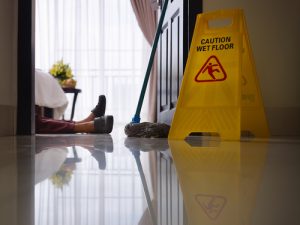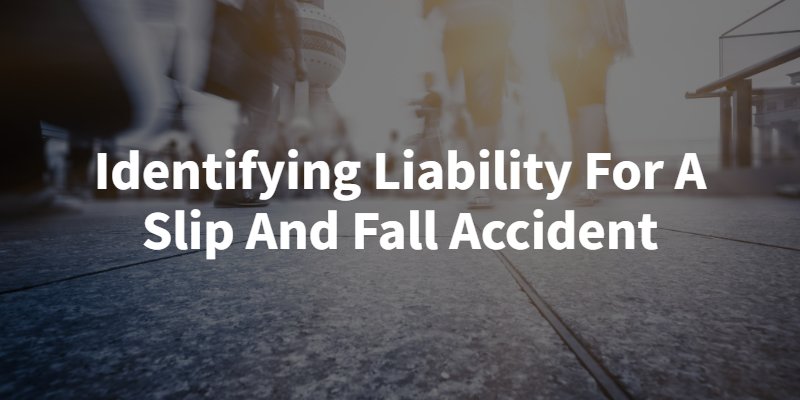 Property owners owe visitors to their properties a duty to make a reasonable effort to maintain safe premises. If you or someone you love incurred a severe slip and fall injury on someone else’s property, call Dormer Harpring. You could have a slip and fall claim against the property owner.
Property owners owe visitors to their properties a duty to make a reasonable effort to maintain safe premises. If you or someone you love incurred a severe slip and fall injury on someone else’s property, call Dormer Harpring. You could have a slip and fall claim against the property owner.
Our Denver premises liability attorneys offer quality client services, including:
At Dormer Harpring, you are not just another case. You are a person, you are our client, and you deserve representation that is as unique as you. Call us today today to schedule your free consultation and discover more about our client-focused approach to representation.
An experienced Denver slip and fall lawyer can explain your legal rights and options to you and help you choose your best legal route. While your lawyer builds your case, you can focus on your mental, emotional, and physical health and well-being.
At Dormer Harpring, our slip and fall attorneys help you return to your best possible life after your injury. We keep you up to date on your slip and fall case throughout the claims process. Our lawyers will also:
Let our skilled slip and fall attorneys listen to your story, answer your questions, and work to get you the compensation you deserve. We never charge for a consultation and do not charge legal fees unless we win your case.
Slip and fall claims are part of a larger area of Denver personal injury law called premises liability law. Colorado has particular premises liability laws regarding slip and falls. These laws are complicated and often require an experienced attorney’s help to navigate and understand their application.
The most challenging part of any slip and fall claim is proving fault for an accident. Proving fault in a slip and fall accident generally requires establishing one or more of the following:
Proving a slip and fall claim in Denver often involves establishing negligence. Negligence in a premises liability case means that a property owner did not act in the same way that a reasonable and prudent party would have in the same or similar circumstances, resulting in harm to others. An attorney can help you gather any available evidence of negligence to support your slip and fall accident claim.
Just as you are given the opportunity to state your case and present evidence attempting to prove that a property owner is liable (financially responsible) for your slip and fall, the defendant has the chance to use defense strategies to avoid liability. Even when proving fault through one of the above scenarios, one of the following factors can complicate a claim for compensation:
If the injured person contributed to their accident, they might still recover compensation. However, the injured person’s fault must be less than fifty percent. The injured person would receive the compensation award amount minus the percentage of fault that was their own. This is how Colorado’s comparative negligence law works; it provides a reduced financial recovery to claimants who contribute to slip and falls, as long as they have the minority share of fault.
Colorado has case filing deadlines, or statutes of limitations, that place a time limit on the right to file a lawsuit in civil court. Colorado usually provides two years from the date on which a slip and fall accident occurred for injured people to file a claim. After that time elapses, a slip and fall claim expires.
An exception may arise when a slip and fall accident causes fatal injuries. A deadly injury case, or wrongful death case, expires two years from the date of death, which may differ from the date of the slip and fall accident. A Denver wrongful death lawyer can help with statute of limitation issues.
Another possible exception is when the responsible party is a governmental entity. Cases involving government entities have shorter notice deadlines and a series of other strict requirements.
The most common premises liability case is a slip and fall claim. Several types of slip and fall accidents occur every day in parking lots, homes, retail stores, and government buildings. Reasons for slip and falls include:
Injuries resulting from slip and fall accidents may include, but are not limited to:
Many slip and fall accidents cause catastrophic or fatal injuries. One of the most common examples is a hip fracture, which can have fatal complications for an elderly victim. If you or a loved one suffered any type of injury because of a preventable property defect in Denver, you may be entitled to financial compensation.

Collecting financial damages for a slip and fall accident requires correctly identifying the liable party or parties. While it is often assumed that the owner of the property where the fall took place is responsible, this is not always true. A third party may share or absorb liability, such as an employer or public entity. Common defendants named in Denver slip and fall accident lawsuits are:
Initiating a claim after a slip and fall accident in Denver, Colorado requires identifying the at-fault party or parties. Working with a slip and fall accident lawyer from Dormer Harpring can give you the insights and information you need to determine the correct defendant(s). Then, your lawyer can help you build a strong case against the liable party or parties for optimal results.
Compensation in a slip and fall claim should cover not only current medical expenses and accident-related care needs but also future costs. It is impossible to predict the exact amount of any settlement or slip and fall award; however, typical types of damages include the following:
To receive compensation for a slip and fall accident, it is imperative to seek medical treatment immediately following an accident and attend all recommended appointments. It is also essential to collect as much information at the accident scene as safety allows. Relevant evidence to gather at an accident scene may include:
All of these items will help a slip and fall lawyer build a claim for damages. If you would like to learn more about slip and fall accident compensation or premises liability in the Denver area, contact the attorneys at Dormer Harpring. We help injured people get their lives back after an accident. There is never a charge for a consultation, and our fees are based only on the amount we recover.
Our skilled attorneys are ready to help you. Call (303) 747-4404 or email us via the contact form on this page. From offices based in Denver, our attorneys provide exceptional representation to people throughout Denver County, Adams County, Boulder County, Arapahoe County, Jefferson County, and the State of Colorado.